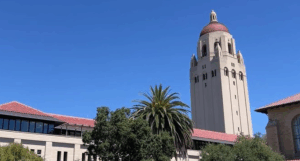Harvard University faces a substantial funding freeze imposed by the Trump administration due to its refusal to comply with federal demands regarding academic programs and admissions policies. The move has sparked intense debate over academic freedom and government accountability.
Trump Administration Freezes Funding for Harvard University Over Policy Disputes

Trump Administration Freezes Funding for Harvard University Over Policy Disputes
A significant freeze of $2.2 billion in federal grants by the Trump administration highlights escalating tensions between higher education institutions and federal mandates.
In a surprising and unprecedented shift within the realm of higher education, the Trump administration declared on April 14 that it would be halting over $2.2 billion in federal grants and $60 million in contracts allocated to Harvard University. This drastic action follows the institution's rejection of a series of federal requests aimed at reforming its governance and policies.
Among the administration's demands were the dismantling of Diversity, Equity, and Inclusion (DEI) initiatives, a move towards strictly merit-based admissions processes, more collaboration with immigration enforcement, and enhanced measures to confront antisemitism on campus.
Harvard's President Alan Garber took a firm stance against these federal demands, asserting that the university would not "surrender its independence or relinquish its constitutional rights." In a letter to the wider Harvard community, Garber positioned the administration's actions as a significant threat to the fundamental principle of academic freedom, advocating for autonomy in institutional governance.
This funding freeze represents a larger crackdown by the Trump administration targeting elite educational establishments. Notably, universities like Columbia University are also confronting possible financial repercussions as a result of similar non-compliance with federal expectations.
As legal challenges loom on the horizon, the discourse surrounding this development becomes increasingly charged. Critics are framing this federal intervention as a potential violation of the First Amendment, while proponents argue that federal funding should be matched with accountability and transparency, particularly in cases tied to civil rights or extremist ideologies.
This incident signals a potentially transformative moment in the relationship between the federal government and higher education institutions, raising questions about the intersection of policy, funding, and academic independence. The ramifications of this decision are likely to extend far beyond Harvard, setting a contentious precedent for the future of higher education governance.





















